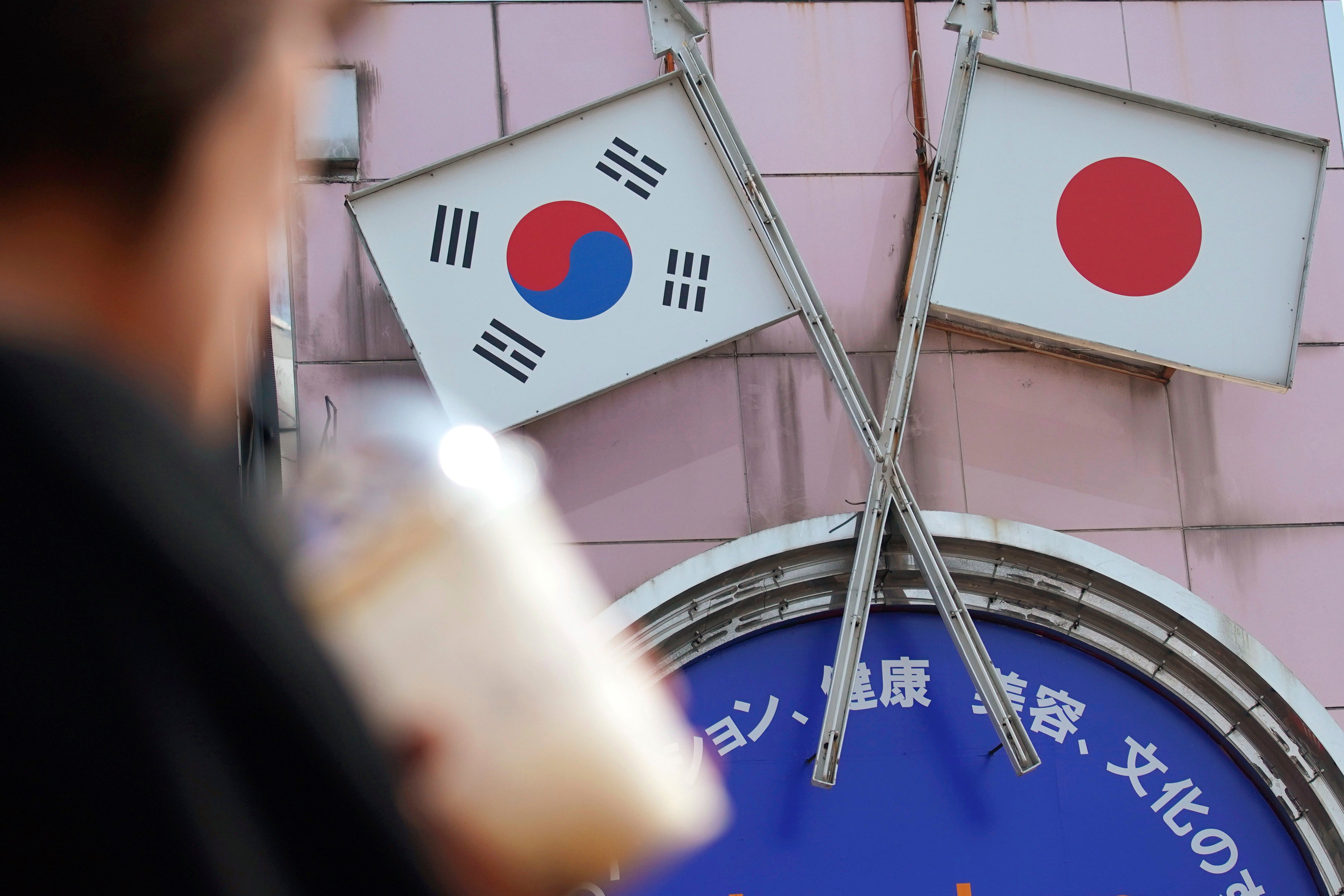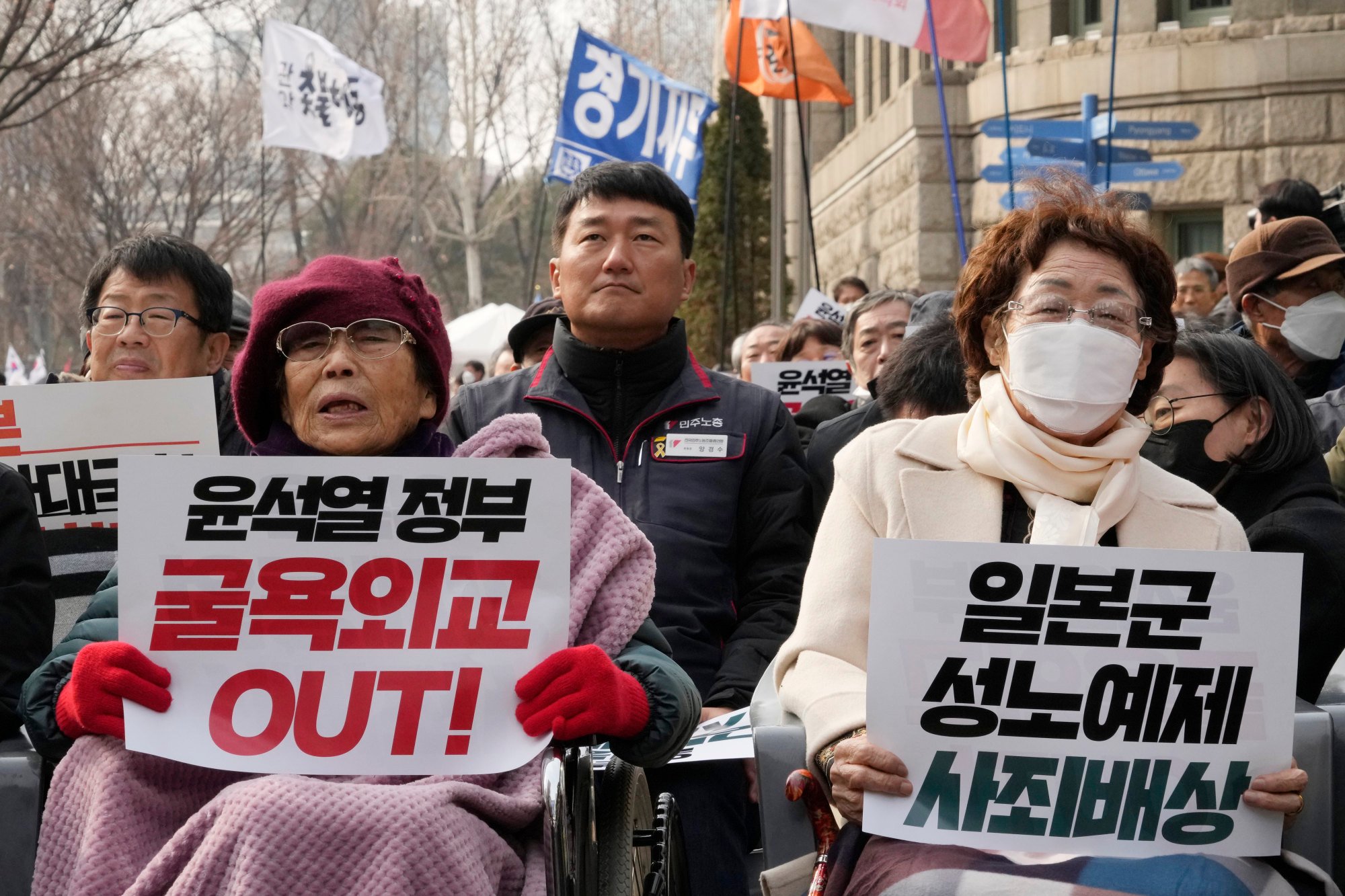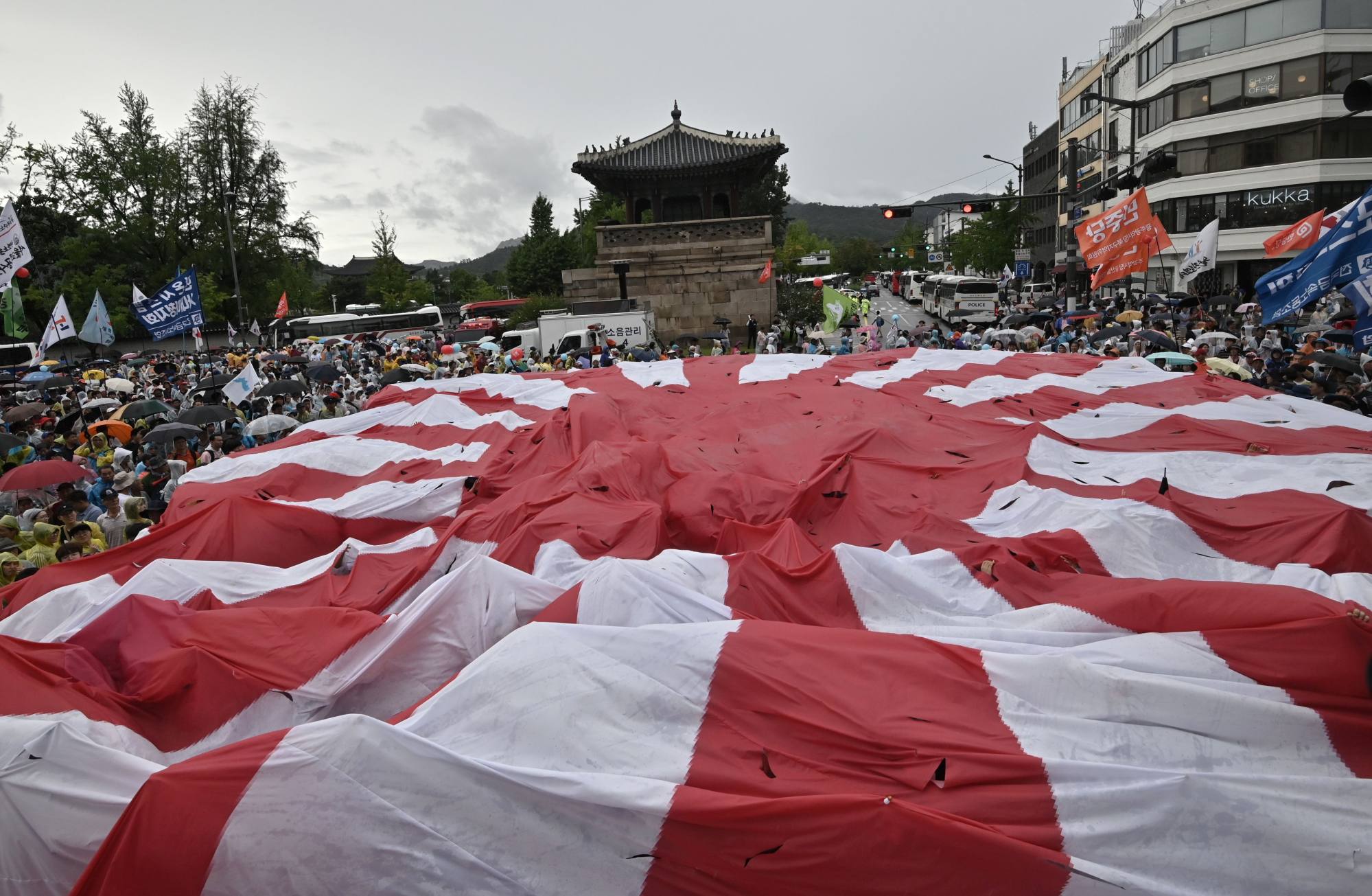South Korea’s ties with Japan face new test after ex-forced labourer wins suit
A 107-year-old South Korean has won his case against Mitsubishi after a court ordered the firm to pay him compensation for his labour

South Korean President Lee Jae-myung is facing an early test of his pledge to pursue pragmatic ties with Japan after a court in Seoul ruled in favour of a former forced labourer’s suit against Mitsubishi Heavy Industries in a case that has reignited nationalistic sentiment.
The ruling by the Seoul Central District Court on Friday was one of several such cases targeting Japanese companies filed by South Korean workers since 2018 after the government of former president Yoon Suk-yeol initiated the creation of a compensation fund that these companies could voluntarily support.
Through the fund, Yoon had hoped to rebuild the bilateral relationship that plummeted under his predecessor Moon Jae-in, in part over the issue of compensation for former forced labourers and “comfort women” serving Japanese troops during Tokyo’s colonisation of the Korean peninsula from 1910 to 1945.
While analysts said Lee should distance himself from the court’s ruling, he was unlikely to avoid questions over his stance on the case and the compensation issue. Expressing full support for the victims of imperial Japan could complicate Seoul’s relations with Tokyo, while Lee being neutral on the issue could upset his domestic support base, according to the analysts.
Both countries had been “at loggerheads” since the 2018 ruling by the South Korean Supreme Court that granted victims or their descendants the right to seek compensation from Japanese firms through the courts, said Jeff Kingston, director of Asian Studies at Temple University in Tokyo.
“That ruling brought things to the boil between Moon and [then-Japanese Prime Minister] Shinzo Abe that quickly descended into a free-for-all of tit-for-tat actions and reactions by both sides,” Kingston told This Week in Asia. “Nothing came out of it except animosity.”

Lee has previously echoed the sentiment of many South Koreans over what they see as Japan’s failure to show remorse or offer adequate compensation for its often brutal 35-year occupation of the Korean peninsula.
That stance might have earned him political support at a time when Yoon was seen as more conciliatory towards Tokyo, according to Kingston.
“Yoon was trying to deepen the alliance and turn the page on the past, although his political implosion has since discredited many of his policies,” Kingston said. “But part of the problem was that Japan did not reciprocate. Yoon was holding out olive branches and making concessions to Japan, even though it was politically difficult for him at home, but Japan just did not respond.”
Successive Japanese governments have stuck doggedly to the position that all claims for compensation were settled by the 1965 treaty that normalised bilateral relations and led to Tokyo paying US$500 million in compensation and Seoul committing to passing the amount to claimants.
Tokyo’s position has been repeatedly challenged, as seen in the slew of cases targeting Japanese companies that were heard in South Korean courts over the past seven years.
The latest case was brought by Kim Han-soo, a 107-year-old South Korean who had been forced to work in a Mitsubishi shipyard in 1944. The original case was rejected in 2002 on the grounds that the statute of limitations had expired. A subsequent appeal by Kim led to the South Korean district court ruling in his favour.

Mitsubishi Heavy has been ordered to pay the plaintiff 100 million won (US$73,641) in compensation, although it is unlikely to adhere to the ruling, mirroring the position of other Japanese firms that have lost similar suits.
Attention will now turn to Lee and how he will respond in the event of Mitsubishi Heavy’s refusal to abide by the court’s ruling.
“Lee is in a difficult position,” said a Japanese academic who declined to be named. “There have been several cases with similar rulings in the past, but the question is how far this is going to be enforced.”
There have been calls in South Korea for some assets of Japanese companies with facilities in the country to be sold and fund the compensation of victims of Tokyo’s colonisation, but such a move would inevitably lead to a strong protest by Tokyo, according to the academic.
“If Lee plays along and praises the court’s decision, that would win him domestic support but it would be a break from the position of previous governments and a change in the status quo,” the academic said. “And any change in the status quo with Japan would inevitably be disruptive.”
Lee’s new administration was already grappling with a host of pressing challenges – including rising unemployment, a sluggish economy, balancing ties with the US and China, and an uncooperative North Korea – making it unlikely he would want to rekindle a dispute with Japan that could drain his political capital, the academic added.
Kingston agreed that Lee would be looking to make more friends than enemies, especially as the “Trump typhoon” continued to blow through the region.
Tokyo should not overreact to another South Korean court’s judgment and Lee should try to avoid being entangled over the case, Kingston said. Nonetheless, Lee could be facing questions in South Korea from those demanding that he take a far harder line against Japan, Kingston added.
“Overall, the dance that has been going on between the two shows no signs of abating and that 1965 agreement really did not solve all the issues. And that is in part because Japan has engaged in half-measures when a grand gesture was required to heal the wounds of major human rights abuses in the past.”